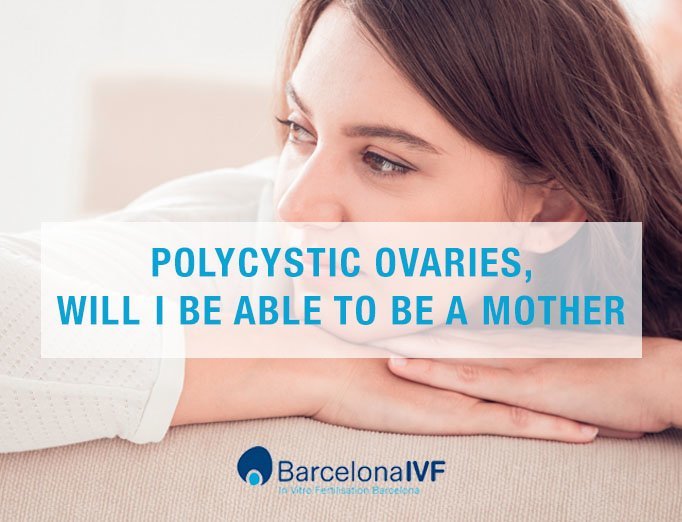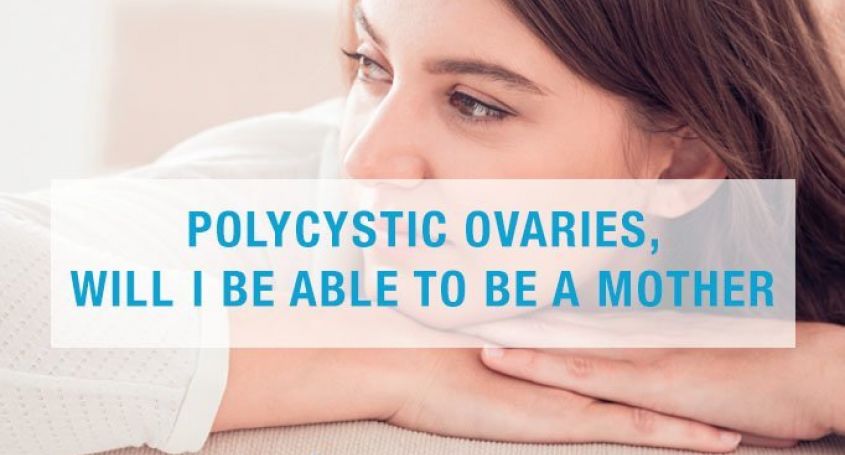
Polycystic ovaries are one of the most common causes for female infertility. Many women discover they have them when they are trying to get pregnant without success.
Having polycystic ovaries consists in the presence of a number of follicles in the woman’s ovaries. The Polycystic Ovarian Syndrome is defined as the presence of at least two of the following factors: polycystic ovaries, menstrual alterations and/or clinical signs of hyperandrogenism (excess of masculine hormones). In these cases, women present major difficulties in obtaining a pregnancy due to not being able to start a natural ovarian cycle with a correct ovulation and a proper mature egg that can be fertilised by a spermatozoid. It is however possible to obtain a pregnancy as, although the number of ovulations is low, they are still present.
Polycystic Ovarian Syndrome. Symptoms?
Although the diagnosis can be carried out in adolescence when identifying irregular menstrual cycles, many women discover it when trying to get pregnant and not being successful. Amongst the most common symptoms in POS are:
- Alterations in the menstrual cycle, be it cycle irregularities (oligomenorrhea) or due to the complete absence of the menstruation (amenorrhea).
- Excess of masculine hormones.
- Pattern of polycystic ovaries observed in the ultrasound, characterized by a very high antral follicular count, sometimes peripheral and with a dense ovarian stroma
Treatment for polycystic ovaries
Polycystic ovaries do not have a specific treatment as they are considered a characteristic of each woman. When associated to other symptoms related to the POS the treatment will be determined by the symptoms to be treated:
- Weight loss. In many occasions, through a diet and an exercise routine cycle irregularities can be neutralised and a natural gestation can be achieved. In more complex situations you can complement this with hypoglicemiants such as metformine.
- Ovarian stimulation treatments with or without insemination. With a simple ovulation induction you can obtain an adequate ovulation and with this increase the chances of a pregnancy. There are different treatments that go from Citrate of Clomifene to Gonadotrofin injections.
 Polycystic ovaries are one of the most common causes for female infertility. Many women discover they have them when they are trying to get pregnant without success.
Having polycystic ovaries consists in the presence of a number of follicles in the woman’s ovaries. The Polycystic Ovarian Syndrome is defined as the presence of at least two of the following factors: polycystic ovaries, menstrual alterations and/or clinical signs of hyperandrogenism (excess of masculine hormones). In these cases, women present major difficulties in obtaining a pregnancy due to not being able to start a natural ovarian cycle with a correct ovulation and a proper mature egg that can be fertilised by a spermatozoid. It is however possible to obtain a pregnancy as, although the number of ovulations is low, they are still present.
Polycystic ovaries are one of the most common causes for female infertility. Many women discover they have them when they are trying to get pregnant without success.
Having polycystic ovaries consists in the presence of a number of follicles in the woman’s ovaries. The Polycystic Ovarian Syndrome is defined as the presence of at least two of the following factors: polycystic ovaries, menstrual alterations and/or clinical signs of hyperandrogenism (excess of masculine hormones). In these cases, women present major difficulties in obtaining a pregnancy due to not being able to start a natural ovarian cycle with a correct ovulation and a proper mature egg that can be fertilised by a spermatozoid. It is however possible to obtain a pregnancy as, although the number of ovulations is low, they are still present.















